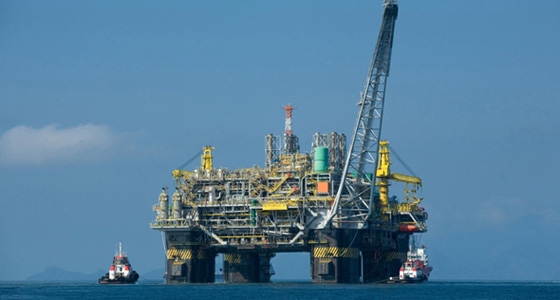Lebanon is due to take a long-awaited step towards awarding contracts for exploration of its offshore gas reserves this month, but questions are being raised about readiness of the turbulent country for the process.
The reserves, which have been estimated at perhaps 25tn cubic feet according to Lebanon's Daily Star, could have a transformative effect on the country's debt-ridden public finances.
After months of delays, the pre-qualification process for interested companies is expected to start as early as this week.
When it eventually does, it will in theory initiate a bidding timetable insulated from the bickering and volatility of Lebanese politics and should see contracts being awarded in March next year. But analysts warn many complex, politically sensitive decisions still lie ahead.
"The legislation that has been passed is pretty user-friendly," says George Booth of Clyde & Co, a law firm specializing in the energy sector. "But the devil is often in the detail."
There has been pressure to take action on offshore exploration since neighboring Israel discovered the Tamar gasfield off its coast in 2009. Subsequent steps by Turkey and Cyprus to explore their stake in the Levant basin put Lebanon at risk of being left behind.
Disputes with Israel, with which Lebanon is technically at war, and to a lesser degree Cyprus over maritime boundaries have added to the pressure to move forward.
Increasing political and sectarian polarization in Lebanon has made taking any kind of action something of a challenge for successive governments – no budget has been passed since 2005.
Nonetheless, with a clear consensus on the importance of making progress on gas exploration (if not on how future revenues should be distributed), the government passed a petroleum law in 2010 and after months of negotiations appointed a petroleum authority at the end of last year.
Important details such as the nature of the exploration and production agreement (EPA) model have not yet been officially approved, but Cesar Abi Khalil, an adviser to the ministry of energy, insists the government is now locked into a series of deadlines which end with the awarding of contracts on March 31 2014.
The EPA model will be approved by the council of ministers by April 12, he says, and formal bidding will commence on May 2. Though an election is scheduled this summer, he argues it will have no effect on the process even if there are delays in government formation as there were after the last polls in 2009, as no further input from the council of ministers will be needed after the opening of the bidding until 2014.
He dismisses the notion that there is currently a lack of clarity for prospective companies. "The petroleum law is very detailed so the implementation decrees cannot come far from the law," he says. "All companies are aware of the program."
Which blocs are currently being put up for bidding also remains to be confirmed, though Mr Abi Khalil implies that investors do not have to worry about disputed waters. "We are keen on drafting attractive blocs," he says.
Interest in the offshore reserves does seem to be high, in spite of the risks associated with doing business in Lebanon. UK-based Cairn Energy has already announced the formation of a consortium to bid for exploration rights and around 30 companies have bought the seismic data, according to Mr Abi Khalil.
Nonetheless, some question the Lebanese government's readiness for the bidding process. Carole Nakhle, an energy economist at the university of Surrey, says the lack of confirmed fiscal and financial details is "not really the ideal thing that investors would like to see" at this stage. She cautions that the ability to attract pre-qualification interest is not the same as the ability to attract actual bids.
Mr Booth argues that Lebanon has not left it too late to flesh out the details, but warns that as a new operator it needs to have a clear sense early on of how to strike a balance between getting enough reward for the domestic constituency and offering enough to attract and retain the interest of quality contractors.
If that balance is not struck early on, he says, a country like Lebanon runs the risk of companies reopening negotiations after their bids have been accepted.
"It's fundamental for any government where oil and gas development is very nascent that the right advice is brought on at an early enough stage," he says.
Moreover, there is concern in some quarters about whether the petroleum authority, whose members were appointed after much intra-elite wrangling, will be given the space to negotiate these kinds of challenging decisions free from political pressures.
"I know the people who were chosen were good people," says Mohammed Qabbani, who heads an energy committee in the Lebanese parliament. "[But] how much will they have a free hand to work objectively? I don't know."
Nassib Ghobril, chief economist of Byblos Bank, insists that the "major part of the politics" is over now that the petroleum authority and law have been set up.
Despite a relatively positive perspective on the process, he estimates that revenues are up to eight years away, however.
"Some politicians are already making plans on how the money should be spent," says Mr Ghobril. "This is wishful thinking."
Financial Times
6 February






















































